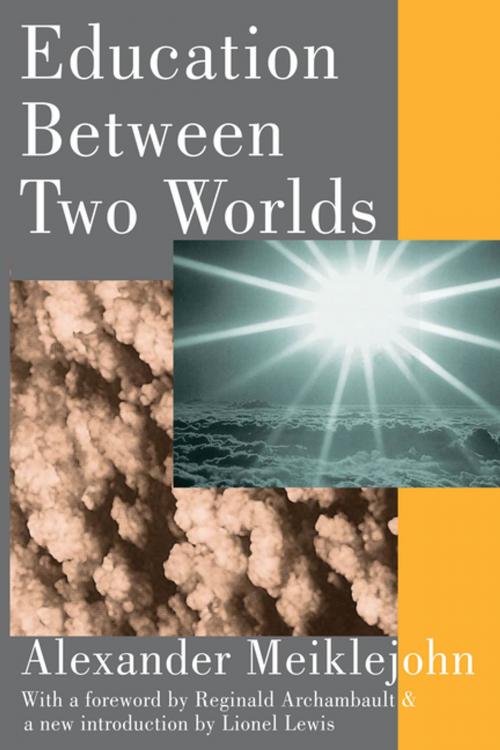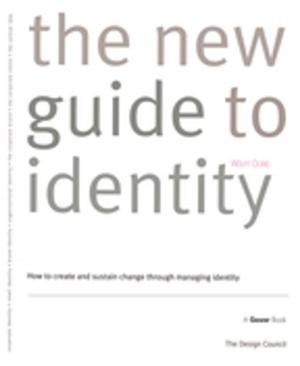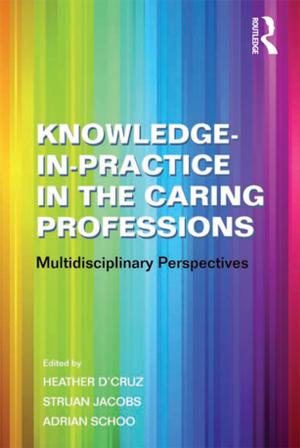Education Between Two Worlds
Nonfiction, Reference & Language, Education & Teaching, Educational Theory, Philosophy & Social Aspects| Author: | Alexander Meiklejohn | ISBN: | 9781351312189 |
| Publisher: | Taylor and Francis | Publication: | September 29, 2017 |
| Imprint: | Routledge | Language: | English |
| Author: | Alexander Meiklejohn |
| ISBN: | 9781351312189 |
| Publisher: | Taylor and Francis |
| Publication: | September 29, 2017 |
| Imprint: | Routledge |
| Language: | English |
Written in the midst of World War II, this book makes a strong argument for the crucial importance of education as the solution to the dilemmas with which our Anglo-Saxon culture was nurtured, with particular emphasis on the work of John Dewey and Jean-Jacques Rousseau."The schools with which this argument is concerned are those of the Anglo-Saxon democracies of the last three centuries. In the life of England and America as we now know them, three hundred years of cultural change have moved on to a culminating and desperate crisis. That culture, in its religious and moral aspects, we have called Protestantism. On the economic and political side it has appeared as Capitalism. And these two together have established and maintained a way of life which we describe as Democratic. This book is devoted to an attempt to understand the education which is given by Anglo-Saxon democracies, to study the learning and teaching which have been done by a Protestant-capitalist civilization." ufrom the Preface.As the original foreword by Reginald Archambault indicates, "Fundamentally this is a book about education written by an educator who was anything but conservative and never merely theoretical. He is interested not only in educational theory but also in educational policy, and indeed, in pedagogy. The volume is invaluable, then, for the student of education, for it sheds critical light on the classic conceptions of education for the poor, and provides a heuristic statement of direction for the future." Stringfellow Barr, writing for the New Republic, indicates that this is "A wise and courageous book. I do not know how anybody concerned with education can ignore it." Mark van Doren in the Nation said, "As many readers as are interested in human happiness should go through this bookafor it is concerned with as important a theme as any I can imagine."
Written in the midst of World War II, this book makes a strong argument for the crucial importance of education as the solution to the dilemmas with which our Anglo-Saxon culture was nurtured, with particular emphasis on the work of John Dewey and Jean-Jacques Rousseau."The schools with which this argument is concerned are those of the Anglo-Saxon democracies of the last three centuries. In the life of England and America as we now know them, three hundred years of cultural change have moved on to a culminating and desperate crisis. That culture, in its religious and moral aspects, we have called Protestantism. On the economic and political side it has appeared as Capitalism. And these two together have established and maintained a way of life which we describe as Democratic. This book is devoted to an attempt to understand the education which is given by Anglo-Saxon democracies, to study the learning and teaching which have been done by a Protestant-capitalist civilization." ufrom the Preface.As the original foreword by Reginald Archambault indicates, "Fundamentally this is a book about education written by an educator who was anything but conservative and never merely theoretical. He is interested not only in educational theory but also in educational policy, and indeed, in pedagogy. The volume is invaluable, then, for the student of education, for it sheds critical light on the classic conceptions of education for the poor, and provides a heuristic statement of direction for the future." Stringfellow Barr, writing for the New Republic, indicates that this is "A wise and courageous book. I do not know how anybody concerned with education can ignore it." Mark van Doren in the Nation said, "As many readers as are interested in human happiness should go through this bookafor it is concerned with as important a theme as any I can imagine."















